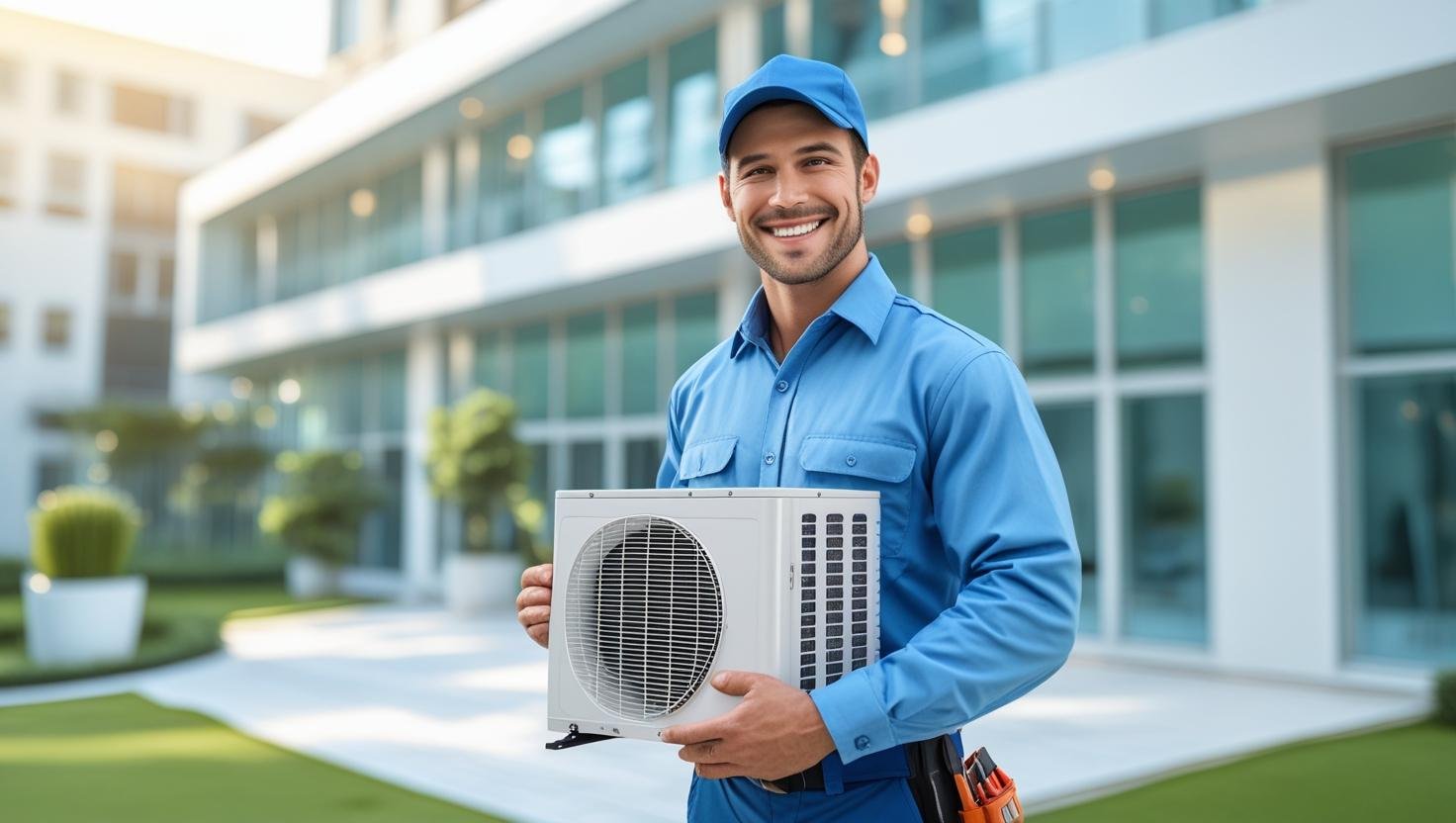Understanding the Importance of Regular Maintenance
Regular maintenance of central air conditioning systems is imperative for ensuring optimal performance, efficiency, and longevity. One of the primary reasons for undertaking routine check-ups is the significant cost savings associated with preventing major breakdowns. When a central air conditioning unit is neglected, small issues can evolve into serious problems, leading to expensive repairs or a complete system replacement. By investing in regular maintenance, homeowners can address minor issues before they escalate, thus mitigating potential financial risks.
Furthermore, a well-maintained air conditioning system operates more efficiently, which translates into reduced energy consumption and lower utility bills. During routine maintenance, technicians typically clean and check various components, including filters, coils, and ductwork. This ensures that the system runs at peak performance, optimizing energy use throughout the cooling season. Additionally, a properly functioning unit has a lower chance of encountering operational issues, resulting in fewer unexpected repair costs.
Another critical aspect of regular maintenance is its impact on indoor air quality. A central air conditioning system can accumulate dirt, dust, and other allergens over time if it is not adequately serviced. These contaminants can circulate in the home, potentially leading to various health issues, including allergies and respiratory problems. Regular servicing can help to ensure that the air circulating within the home is clean and healthy, providing peace of mind to homeowners and their families.
Moreover, consistent maintenance prolongs the lifespan of the central air conditioning unit. A well-cared-for system is less likely to experience premature failure, allowing homeowners to maximize their investment. Ultimately, understanding the importance of regular maintenance is pivotal in enhancing comfort in the home while ensuring a cost-effective and efficient cooling solution.
Key Components of Central Air Conditioning Systems
Central air conditioning systems are composed of several key components that work collaboratively to deliver cool air throughout residential and commercial spaces. Understanding these components is critical for effective maintenance and troubleshooting during operation. The primary constituents of these systems include the compressor, condenser, evaporator, and ductwork.
The compressor serves as the heart of the air conditioning system, responsible for circulating refrigerant between the indoor and outdoor units. It compresses the refrigerant gas, elevating its temperature and pressure, which enables the heat to be transferred efficiently. An underperforming compressor can significantly impact the overall efficiency of the system, potentially leading to higher energy bills and insufficient cooling.
The condenser is located outside the building, where it dissipates heat absorbed by the refrigerant during the cooling process. It consists of coils that allow the refrigerant to release its heat to the ambient air, transforming the gas back into a liquid state. Regular inspection of the condenser coils is essential, as dirt and debris can hinder their ability to release heat properly, resulting in decreased performance.
Inside the home, the evaporator works in tandem with the compressor. It absorbs heat from the indoor air, leading to the cooling effect that occupants feel. The evaporator coil must be kept clean to function optimally. If the coils become dirty, it can lead to reduced airflow and inefficient cooling, which may cause the system to overwork, potentially leading to system failure.
Lastly, the ductwork is the network of insulated pipes that transport the conditioned air throughout the space. Proper maintenance of the ductwork is vital, as leaks or blockages can cause significant energy loss and inconsistent temperature regulation. Sealing and cleaning the ducts ensure that air flows efficiently to all areas of the home.
Maintenance Tasks You Can Do Yourself
Homeowners can enhance the efficiency and longevity of their central air conditioning systems by performing several maintenance tasks on their own. These relatively simple actions can significantly impact the overall performance of the air conditioning unit, ensuring optimal cooling during hot months.
One of the primary tasks is changing the air filters. Clogged filters can restrict airflow, forcing your system to work harder and consume more energy. It is recommended to check the filters every month, especially during peak usage seasons, and replace them every three months or sooner if they appear dirty. Ensure you use the correct size and type of filter, which can typically be found in the owner’s manual of the unit.
Cleaning the outdoor condenser unit is another crucial task. Debris such as leaves, dirt, and grass clippings can obstruct the unit, significantly affecting its efficiency. To clean the condenser, you should first turn off the power to the unit. Remove any large debris by hand and gently use a vacuum with a brush attachment to clear away finer debris. Additionally, it is advisable to hose down the fins of the condenser to remove dirt, ensuring the unit operates efficiently.
Checking the thermostat settings is vital for optimal comfort and efficiency. Ensure that the thermostat is set correctly and, if applicable, consider switching to a programmable thermostat that can automatically adjust temperatures based on your schedule. This can help reduce energy costs while maintaining a comfortable home environment.
Lastly, inspecting the ductwork for leaks is essential. Sealing any visible leaks with appropriate duct tape can prevent conditioned air from escaping, which enhances the overall efficiency of your system. Regularly examining these components can empower homeowners to take control of their air conditioning maintenance, fostering a DIY mindset for basic upkeep.
When to Call a Professional for Maintenance
Maintaining your central air conditioning system is crucial for ensuring optimal performance and longevity. However, certain situations warrant the immediate attention of a professional technician. Recognizing the signs that indicate the need for expert intervention can save you from expensive repairs down the line and enhance the efficiency of your cooling system.
One of the most noticeable indicators of an issue with your air conditioning unit is the emergence of unusual noises. If you hear clanging, grinding, or hissing sounds, it suggests that there could be mechanical failures or loose components within the system. These noises often signal deeper issues that require the expertise of a qualified technician to diagnose and repair. Ignoring such symptoms could lead to further damage and an expensive repair bill.
Poor cooling performance is another critical sign that it’s time to call a professional. If your system is unable to maintain the desired temperature or certain rooms are warmer than others, it may indicate a problem with the compressor, ductwork, or refrigerant levels. A certified technician can conduct a thorough assessment to determine the underlying cause and implement the appropriate solutions to restore efficient cooling.
Refrigerant leaks are a serious issue that necessitates immediate professional attention. If you notice ice forming on the coils or a decrease in cooling efficiency, it is possible that your air conditioning unit is losing refrigerant. Not only does this affect the performance of the system, but it can also pose environmental risks. A professional will handle the leak detection and repair process safely, ensuring compliance with environmental regulations and restoring your system to optimal working order.
Being aware of these signs is essential for maintaining your central air conditioning system’s health. Timely engagement of professional services ensures that any potential problems are addressed promptly, preserving efficient operation and extending the life of the equipment.
Share this content:

